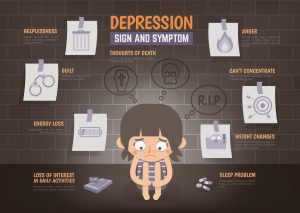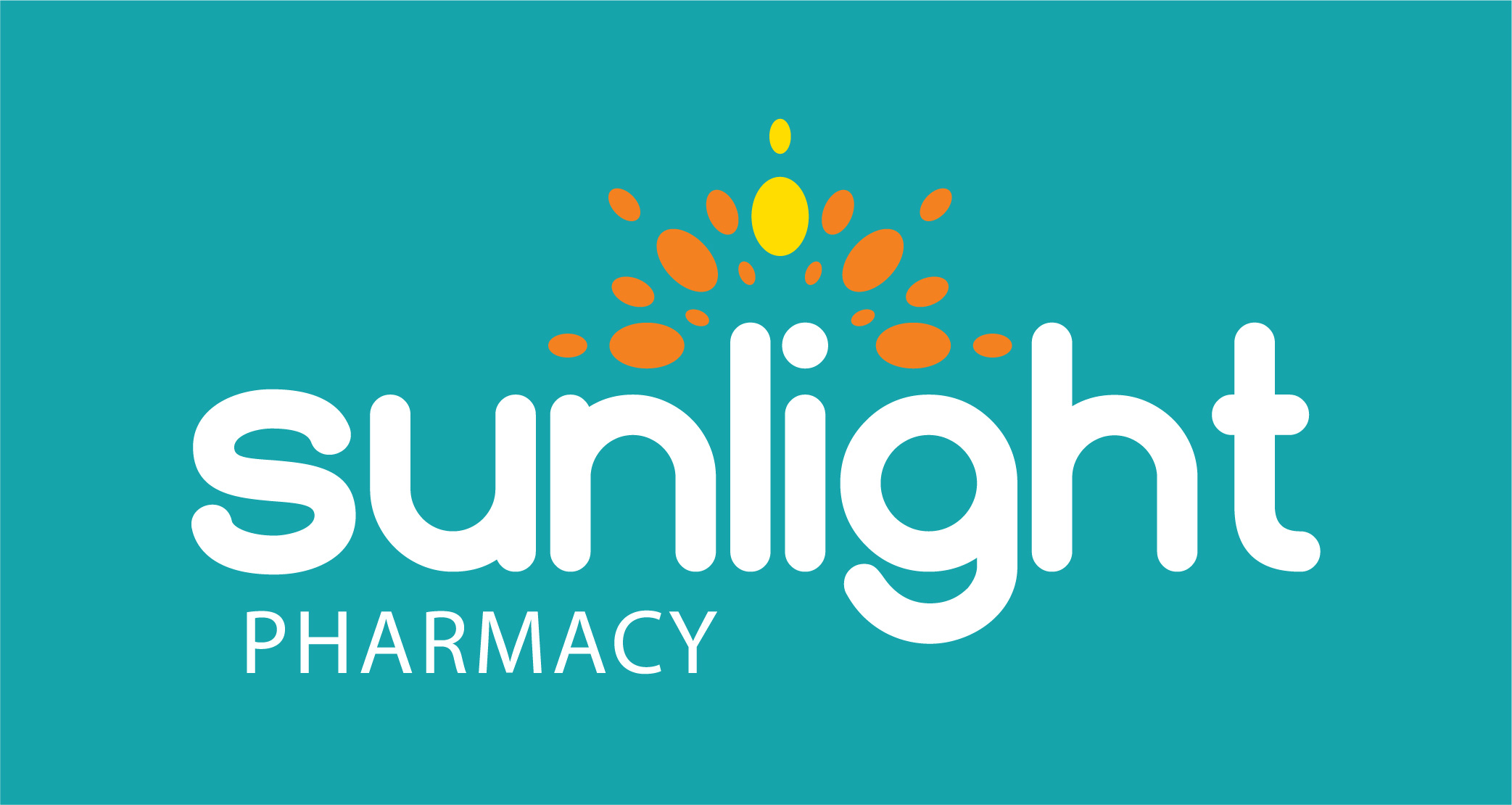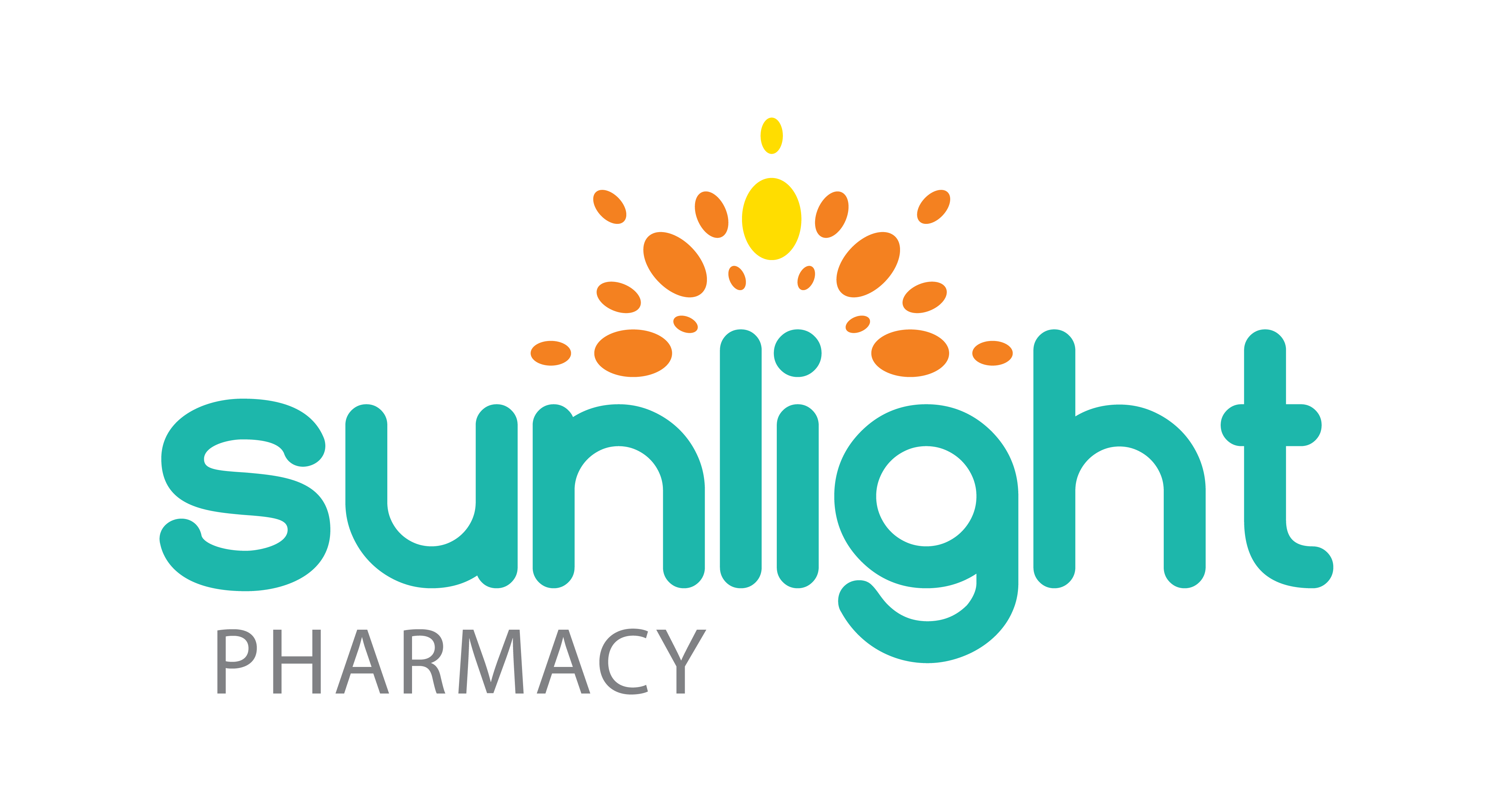
09 Jun The Silent Killer in Rise – Depression
We are all humans and it is perfectly normal for us to be happy (hopefully most of the time), and in low mood sometimes.
It is, however, important to determine the clear differences between just being moody and depression. While the symptoms of the two seems similar, depression is actually much more than just sadness.
Depression is a real illness, but fortunately it can be treated.
How is depression like?
Individuals are normally considered having a major depression if they are suffering from symptoms in the following illustration for more than 2 consecutive weeks, where their daily activities have been severely interrupted.

Who are at risk?
Some of the people have higher possibility of getting depression compared to others – below are some of the risk factors of the development of depression:
- Personality traits – Self-critical and pessimistic individuals, who often have lower self-esteem tend to put more stress on themselves and therefore have a higher chance of getting depression.
- Stressful events – Those who underwent childhood trauma, physical or sexual abuse, the death or loss of a loved one, a difficult relationship, or in long term financial problems.
- Genetic Trait – Individuals with blood relatives who has history of depression, alcoholism or suicide are more susceptible to depression.
- Being lesbian, gay, bisexual or transgender in an unsupportive situation
- History of other mental health disorders such as anxiety & eating disorders
- Abuse of alcohol or illegal drugs
- Medical conditions: Sufferers of serious or chronic illness, including cancer, stroke, chronic pain or heart diseases have higher risks of developing depression.
- Certain medications, such as some high blood pressure medications or sleeping pills (Talk to your doctor before stopping any medication)
Ways to help with depression
- Learn about depression. Education about your condition can empower you and motivate you to stick to your treatment plan. Encourage your family to learn about depression to help them understand and support you.
- Take care of yourself. Eat healthy, be physically active and get plenty of sleep. Consider walking, jogging, swimming, gardening or another activity that you enjoy. Exercise helps to boost endorphins – the brain chemical that makes you feel good. Sleeping well is important for both your physical and mental well-being. If you’re having trouble sleeping, talk to your doctor about what you can do.
- Stick to your treatment plan. Medications and psychological counselling (psychotherapy) are effective for most people with depression. Don’t skip psychotherapy appointments. Even if you’re feeling well, don’t skip your medications. If you stop, depression symptoms may come back, and you could also experience withdrawal-like symptoms.

- Aromatherapy – A complimentary treatment option. Thought to work by stimulating smell receptors in the nose, which then send messages through the nervous system to the part of the brain that controls emotions. However, do not replace your medical treatment or psychotherapy with aromatherapy without consulting your doctor.
- Omega-3 fatty acids. These healthy fats are found in cold-water fish, flaxseed, flax oil, walnuts and some other foods. Studies showed consumption of Omega-3 fatty acid; every 50mg/day is correlated to 7% risk reduction for depressive symptoms. Omega 3 fatty acid was found to improve depression symptoms.

References
- Mayoclinic http://www.mayoclinic.org/diseases-conditions/depression/basics/risk-factors/con-20032977
- Braun, C. and Cohen, M. (2015) Herbs and Natural Supplements: An Evidence Based Guide, 4th Ed., Vol. 2. Australia: Churchill Livingstone.




Sorry, the comment form is closed at this time.